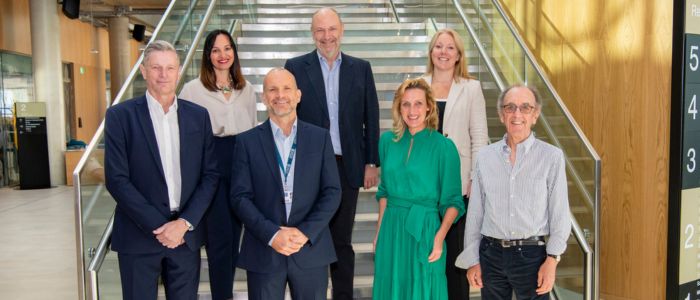University of Glasgow launches MedTech Innovation Fund
Published: 5 September 2024
The fund will build on the institution’s strengths in life sciences and engineering, supporting innovative health care solutions that can deliver a positive impact on society.

The University of Glasgow has launched a new fund to encourage the translation of research to strengthen the development of its spin-out pipeline in the field of MedTech.
The MedTech Innovation Fund (MT-IF) will build on the institution’s strengths in life sciences and engineering, supporting innovative health care solutions that can deliver a positive impact on society.
The new fund of more than £500,000 is open to staff and researchers at the University who can demonstrate the potential to commercialise their ideas.
Following an open call for applications from within the University community, an experienced judging panel comprised of MedTech experts from the UK and internationally convened this week to consider the proposals.
The judging panel included Project Chair Professor Stewart White (University of Glasgow), Project Lead Anne Roberts (University of Glasgow), retired Pfizer executive John Young, MedTech chair Albert Nicholl, health board innovation lead Katriona Brookshank, MedTech investor and founder Ron Lennox, and medical device design company founder Morven Shearlaw.
The fund will support individuals and teams behind new medical devices or digital health products, providing the innovators with the backing they need during the early stages of their development roadmap and progressing their ideas beyond the laboratory and lecture room.
The fund has been established with support from the Scottish Funding Council University Innovation Fund, the UK Government’s Shared Prosperity Fund, and through a generous private donation.
Uzma Khan, Vice Principal for Economic Development and Innovation at the University of Glasgow, welcomed the launch of the MT-IF fund.
She said: “Life sciences and health technology is a key strength in the West of Scotland, with the University of Glasgow positioned as a world-class academic institution in terms of its research excellence in health and wellbeing.
“The University is committed to pushing the boundaries of discovery science and in translational research to generate positive societal benefits and impact, high-value job creation and improvements in the delivery of health care through supporting a pipeline of cutting-edge health technology start-ups and spin-outs.”
Recent spin-out successes at the University include Neuranics and Nami Surgical, which span out from the University in 2021 and 2022 respectively.
Neuranics has developed magnetic sensors integrated with semiconductor technology for health, fitness, and metaverse applications, while Nami Surgical has developed a high-performance, miniaturised ultrasonic scalpel, overcoming significant barriers in robotic-assisted surgery.
Speaking at the external panel session to assess the fund applications, Albert Nicholl, Med-Tech expert and chairman of Nami Surgical, said: “The MedTech Innovation Fund will be an important building block within the overall ecosystem.
“One of the significant challenges with any innovation in MedTech is early funding to support development. The University is demonstrating real commitment to the sector with this fund and further demonstrates their understanding of what it takes to create a successful business in this space.”
Developing its spin-out pipeline is a key focus of the University's Innovation Strategy, which also sets out the ambition of the institution to increase economic impact in the Glasgow Riverside Innovation District (GRID).
GRID is an ambitious partnership between the University of Glasgow, Glasgow City Council and Scottish Enterprise to accelerate an inclusive approach to innovation, and covers 700 acres along the River Clyde, from the Queen Elizabeth University Hospital in Govan to the University's campus at Gilmorehill.
The district is home to a growing number of businesses operating in the fields of life science, quantum, artificial intelligence (Al), extended and virtual reality (XR/VR), semiconductors, creative/cultural and energy, and include an expanding portfolio of high-growth University spin-outs.
Image caption, pictured from left to right: Albert Nicholl, Anne Roberts, Prof Stewart White, John Young, Morven Shearlaw, Katriona Brookshank and Ron Lennox.
First published: 5 September 2024

